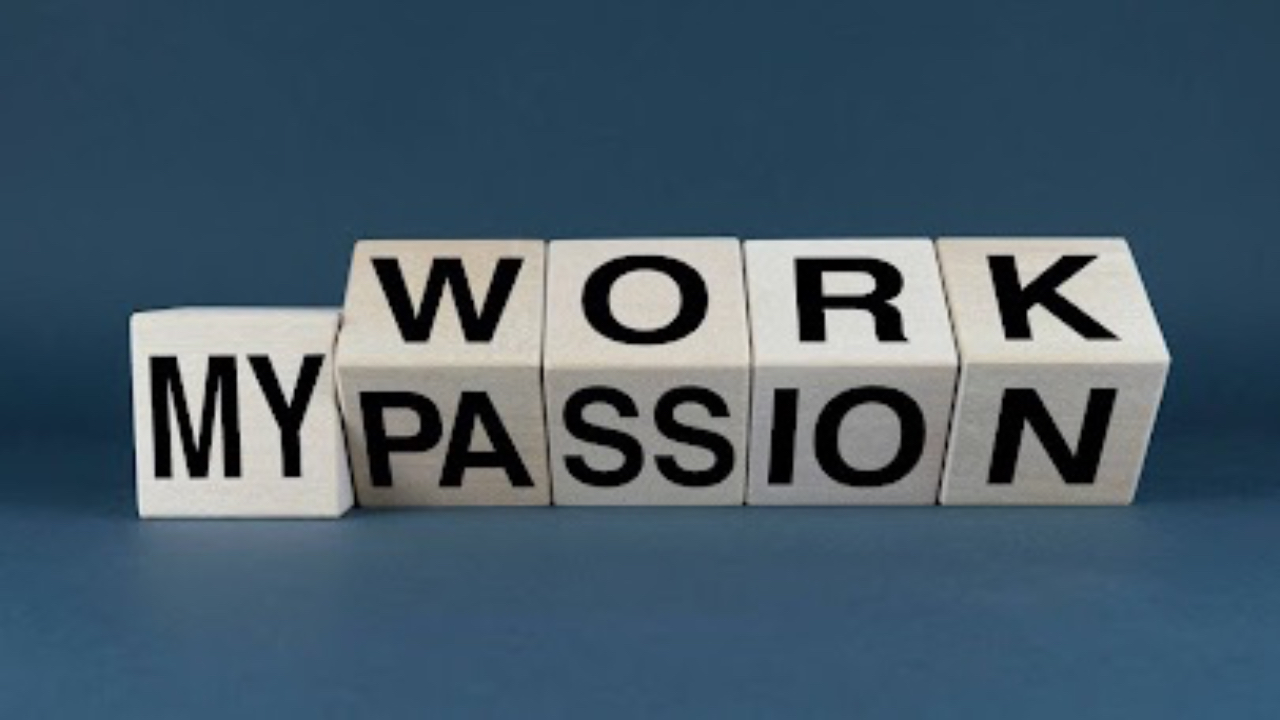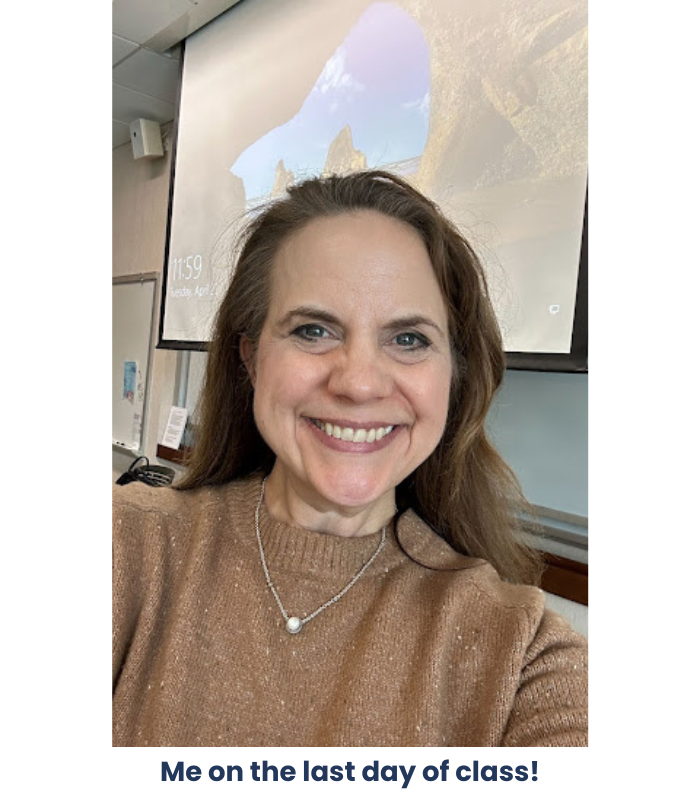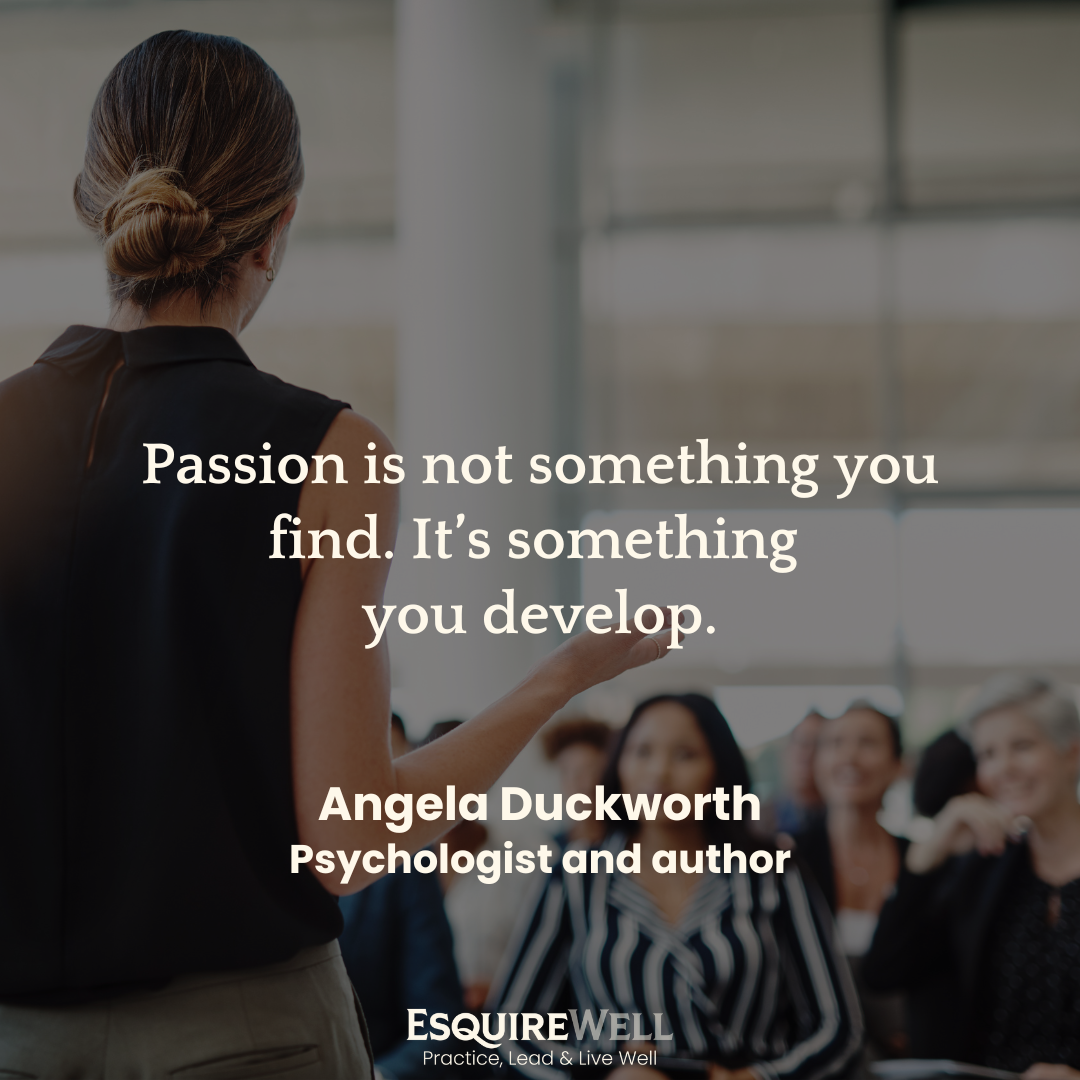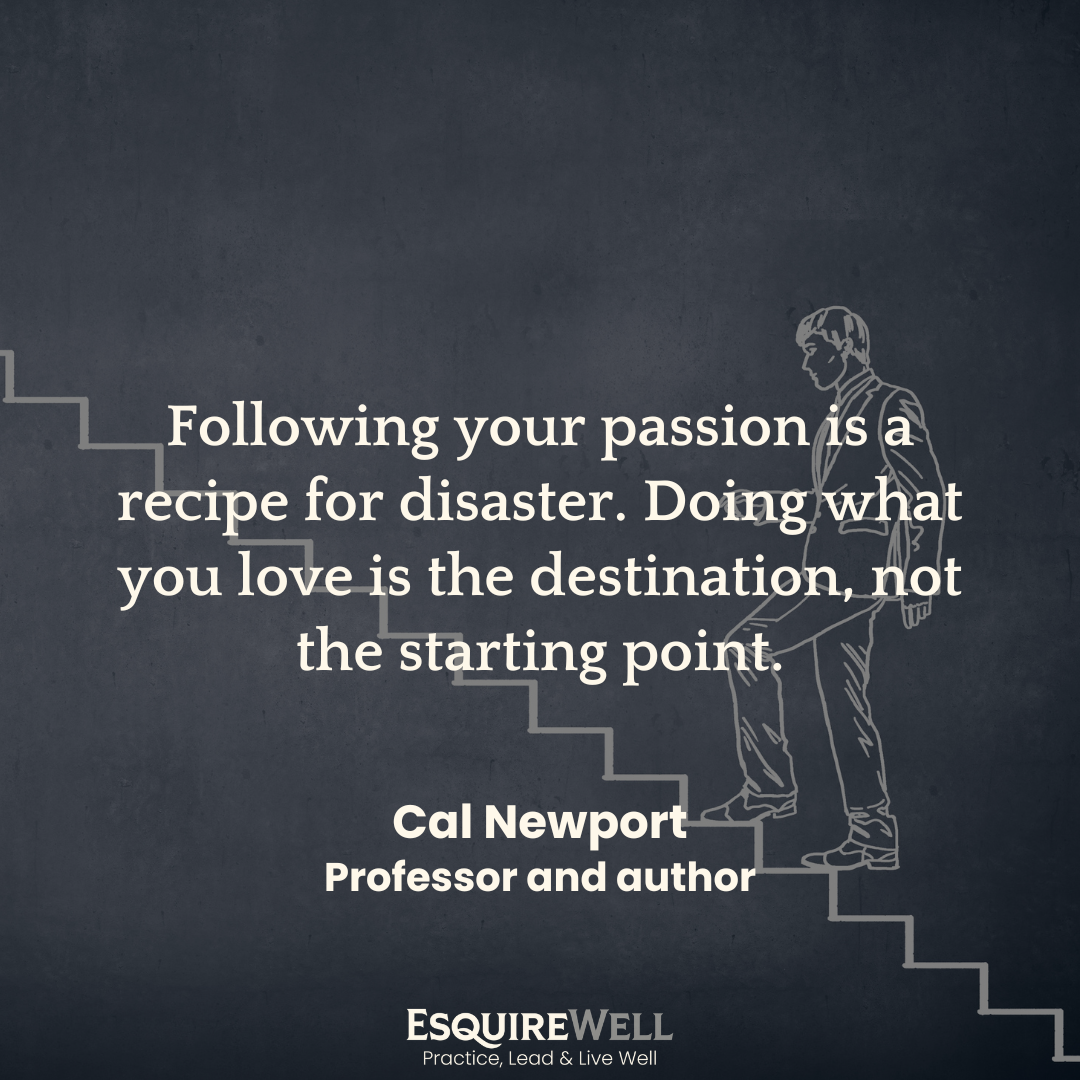Why ‘Follow Your Passion’ Isn't Always the Best Advice: A Smarter Way to Thrive in Law

Every year, at the end of the semester. I reflect on the students (almost all 3L’s) in our upper-level, two-credit “Well-Being and Professional Formation” course at the University of St. Thomas School of Law. It was an honor to co-teach with Professor Jerry Organ and to walk alongside these future lawyers as they considered how to build meaningful, sustainable legal careers.

In one of our class sessions, we talked a lot about occupational well-being and the invisible forces can shape our career decisions.
Enter: Cognitive scripts.
Right now, I’m reading Tiny Experiments by Anne-Laure Le Cunff (who’s joining us for an upcoming EsquireWell Masterclass-learn more here). She describes three common “scripts” that often guide our life and career choices more than we realize:
-
The Sequel Script: You’ve done X, so of course you must do Y. This mindset says your next step should follow naturally from the last, even if your interests or circumstances have changed.
-
The Crowdpleaser Script: You make decisions based on what others will approve of - your professors, your family, LinkedIn.
-
The Epic Script: You believe your life and career must be BIG, bold, and purpose-driven, or they don’t count.
Sound familiar?
These scripts are sneaky. They feel logical. But they can leave even the most capable, driven professionals feeling boxed (or burned out), especially in a profession like law, where expectations are sky-high and norms are deeply entrenched.
What I want most for my students - what I want for all of us in the legal profession - is the freedom to notice those scripts, question them, and write new ones.
Le Cunff encourages us to try tiny experiments: small, safe ways to explore new paths without needing to burn everything down or commit forever. These little experiments can teach us more than endless overthinking ever could.
And importantly, it's not just about "following your passion." Psychologist and researcher Carol Dweck, author of Mindset, found that people who are told to "find their passion" are more likely to give up when their interest gets hard - which it inevitably will.
Or as Paul O'Keefe, Stanford researcher and co-author of the study “Implicit Theories of Interest“ said with his colleagues: “Urging people to find their passion may lead them to put all their eggs in one basket but then to drop that basket when it becomes difficult to carry.”
Instead, we can grow our passions - slowly, imperfectly, with curiosity and courage - specially in law, where so much of our career growth happens through experience, reflection, and relationships.
A Few Questions to Reflect On:
-
What script might be influencing your next career step—and is it truly yours?
-
Are you making a decision because it feels right to you—or because it looks right to others?
-
What’s one tiny experiment you could try that moves you toward something that feels more aligned?
Practical Next Steps:
Name the script. Simply naming the Sequel, Crowdpleaser, or Epic script can help loosen its grip.
Try a tiny experiment. Reach out for a coffee chat, sign up for a workshop, volunteer for a new kind of legal task, or start journaling about what excites you—not what you “should” do.
Get curious, not perfect. You don’t need a five-year plan. Just your next small step and the willingness to learn from it.
To the law students finishing their 3L year who are reading this:
You don’t have to have it all figured out. You just have to stay curious, keep learning, and trust that small steps can lead to meaningful shifts.
And to all of us practicing and working in the legal profession:
It’s never too late to rewrite your script.
Recommended Resources
[Video] Anne-Laure Le Cunff: The 3 cognitive scripts that rule over your life
[Article] “Striking a Balance Between Your Passion and Your Paycheck” by Erin A. Cech
[Video] The Psychology of Career Decisions | Sharon Belden Castonguay | TEDxWesleyanU
[Article] On Passion and Its Discontents - Cal Newport (I first heard why “follow your passion” may not be the best career advice from Cal Newport.)
[Article] "Find your passion" is bad advice, say Yale-NUS and Stanford psychologists
Feel free to download, share, and use these quotes to inspire yourself and others!



